Illinois environmentalists and lawmakers have been tackling the issue of plastic bag usage in recent years. The state has been exploring different approaches to lessen the impact of plastic bags on the environment and reduce waste. One of the main focuses has been the implementation of a plastic bag tax.
A plastic bag tax is a charge imposed on consumers for every single-use plastic bag they use when making purchases. The goal of this tax is to encourage individuals to bring their own reusable bags and reduce the amount of plastic waste that ends up in landfills, oceans, and other natural habitats.
In Illinois, there is currently no statewide plastic bag tax in place. However, several cities and counties have taken matters into their own hands and implemented their own regulations on plastic bag usage. These local ordinances often include bans or fees on plastic bags in certain establishments, such as grocery stores and retail outlets.
For instance, the city of Chicago passed a plastic bag ban, which went into effect on August 1, 2015. Under this ban, large retailers were prohibited from providing customers with single-use, plastic carryout bags. Instead, they were encouraged to offer reusable bags for purchase or provide paper bags for free.
Other cities and counties, such as Evanston, Oak Park, and Cook County, have also implemented similar regulations to discourage the use of plastic bags and promote more sustainable alternatives.
While there is no statewide plastic bag tax in Illinois, the existence of various local regulations indicates a growing concern for the environment and a desire to reduce plastic waste. It’s important for residents and visitors to familiarize themselves with these local ordinances and make conscious choices when it comes to their bagging preferences.
- Overview of Plastic Bag Usage in Illinois
- Plastic Bag Tax
- Local Regulations
- Environmental Impact
- Plastic Bag Tax in Illinois: What You Need to Know
- Current Regulations on Plastic Bag Usage in Illinois
- Plastic Bag Tax
- Exemptions
- The Impact of Plastic Bag Pollution on the Environment
- Question-answer:
- Is there a plastic bag tax in Illinois?
- How much is the plastic bag tax in Illinois?
- Are there any exemptions to the plastic bag tax in Illinois?
- What is the purpose of the plastic bag tax in Illinois?
- How will the revenue collected from the plastic bag tax in Illinois be used?
Overview of Plastic Bag Usage in Illinois
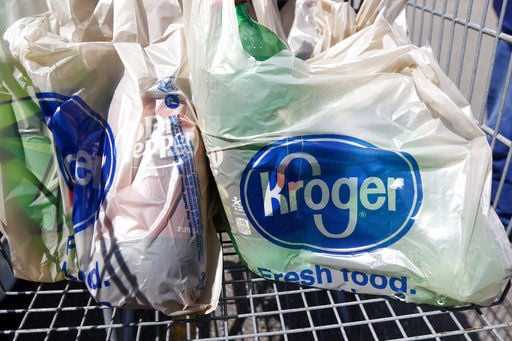
Plastic bag usage has been a hot topic of discussion in Illinois in recent years. As concerns about the environment and sustainability have grown, so have efforts to reduce single-use plastics, including plastic bags.
Plastic Bag Tax
Currently, there is no statewide plastic bag tax in Illinois. However, some municipalities within the state have implemented their own regulations and taxes on plastic bags.
Local Regulations
Several cities in Illinois, including Chicago, have implemented their own plastic bag regulations. These regulations often include a ban on single-use plastic bags and require retailers to charge a fee for each paper or reusable bag provided to customers. The fees collected are often used to support environmental initiatives or programs within the municipality.
The details of these regulations, such as the specific fee charged and exemptions for certain types of businesses, may vary between cities. It is important for both retailers and consumers to familiarize themselves with the specific regulations in their area.
Environmental Impact
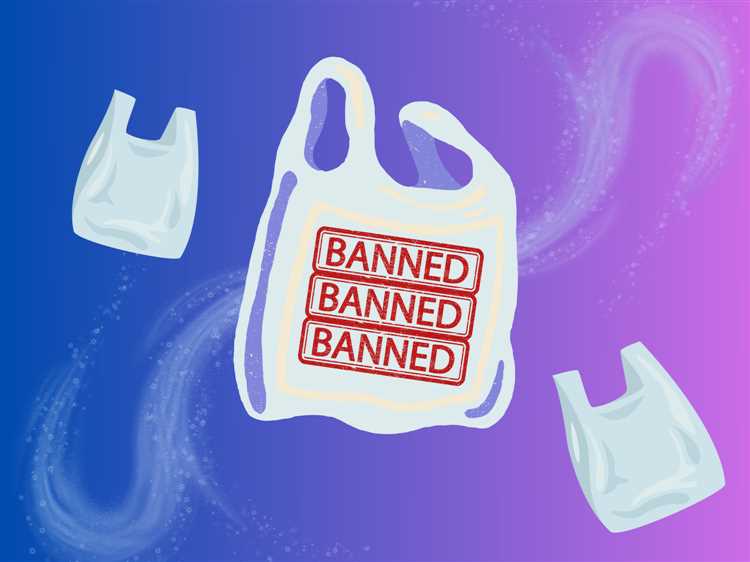
The push to reduce plastic bag usage in Illinois is driven by concerns about the environmental impact of these bags. Plastic bags can take hundreds of years to decompose, and when they do, they release harmful pollutants into the soil and water.
By reducing the usage of plastic bags, Illinois aims to minimize pollution, protect wildlife, and promote a more sustainable future. Many residents and businesses in the state have already embraced alternative options, such as reusable bags, to help achieve these goals.
| City | Details |
|---|---|
| Chicago | Ban on single-use plastic bags Charge of $0.07 for paper or reusable bags |
| Evanston | Ban on plastic bags provided by retailers Charge of $0.07 for paper or reusable bags |
| Champaign | Ban on single-use plastic bags Charge of $0.10 for paper or reusable bags |
It is important for both residents and visitors in Illinois to be aware of the plastic bag regulations in the cities they are in to ensure compliance and contribute to the state’s efforts towards a more sustainable future.
Plastic Bag Tax in Illinois: What You Need to Know
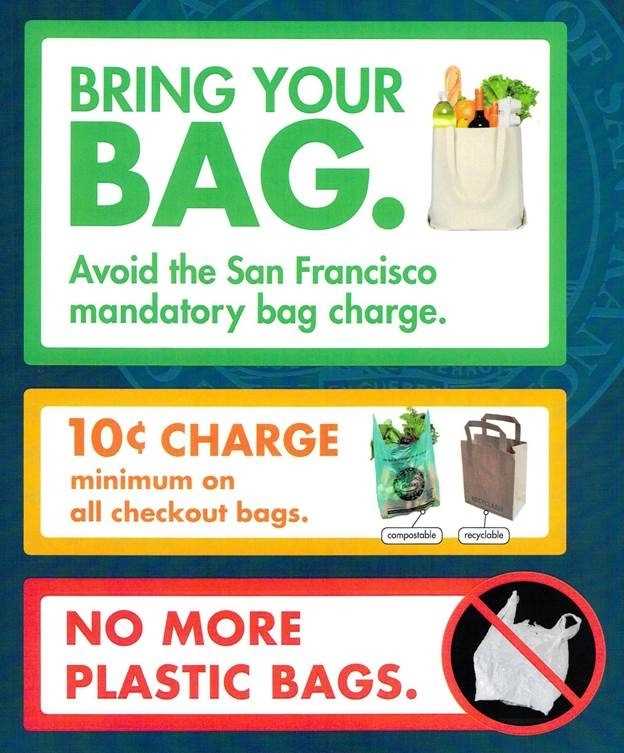
If you’re planning a shopping trip in Illinois, it’s important to be aware of the regulations surrounding plastic bag usage. The state is taking steps to reduce plastic waste through the implementation of a plastic bag tax.
Starting from August 1, 2022, retail establishments in Illinois are required to charge customers a 7 cent tax on each single-use plastic bag provided at checkout. This tax applies to all types of stores, including grocery stores, convenience stores, and retail chains.
The implementation of this plastic bag tax is aimed at encouraging consumers to switch to reusable bags and reduce the amount of plastic waste that ends up in landfills and pollutes the environment. By making customers pay for each plastic bag they use, the state hopes to make people more conscious of their plastic consumption and encourage the adoption of more sustainable alternatives.
It’s worth noting that there are certain exceptions to the plastic bag tax. Small retail establishments, such as those with less than 7,500 square feet of retail space or fewer than three locations, are exempt from charging the tax. Additionally, bags used to package products that are not food or groceries, such as clothing or hardware items, are also exempt.
To ensure compliance with this regulation, retail establishments are required to keep accurate records of the number of plastic bags sold and the amount of tax collected. These records must be kept for at least three years and made available for inspection by the Illinois Department of Revenue.
| Effective Date | Tax Amount | Exemptions |
|---|---|---|
| August 1, 2022 | 7 cents per bag | Small retail establishments (less than 7,500 sq ft or fewer than three locations) Non-food or grocery packaging bags |
It’s important for consumers to be prepared for this plastic bag tax when shopping in Illinois. Consider bringing your own reusable bags to avoid the additional cost and contribute to a cleaner environment.
Current Regulations on Plastic Bag Usage in Illinois
Illinois has implemented several regulations on plastic bag usage in an effort to reduce waste and promote sustainability. The Illinois Plastic Bag and Film Recycling Act, enacted in 2012, established a recycling program for plastic bags and film. Under this act, retailers in Illinois are required to provide opportunities for their customers to recycle plastic bags and film, either by providing on-site collection bins or participating in a local recycling program.
Plastic Bag Tax
In addition to the recycling program, Illinois has also implemented a plastic bag tax in certain areas. As of July 1, 2017, the city of Chicago imposed a 7 cent tax on each plastic or paper bag provided at checkout. This tax is aimed at encouraging consumers to bring their own reusable bags when shopping and reduce the use of single-use plastic bags.
Outside of Chicago, other municipalities in Illinois have also implemented their own plastic bag taxes or bans. For example, the city of Evanston has a plastic bag tax of 10 cents per bag, while Oak Park has banned the distribution of plastic bags altogether.
Exemptions
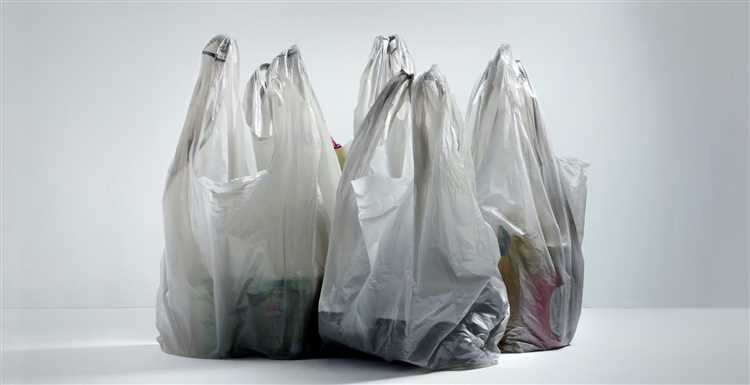
There are certain exemptions to the plastic bag tax in Illinois. Some of these exemptions include bags used to package or wrap fresh produce, meats, bakery goods, prescriptions, and certain bulk items. Additionally, customers who are participating in government assistance programs are exempt from paying the tax on bags.
It’s important for residents, retailers, and visitors to stay informed about the current regulations on plastic bag usage in Illinois, as they may vary by location. By understanding and complying with these regulations, individuals can contribute to the reduction of plastic waste and help create a more sustainable future.
The Impact of Plastic Bag Pollution on the Environment
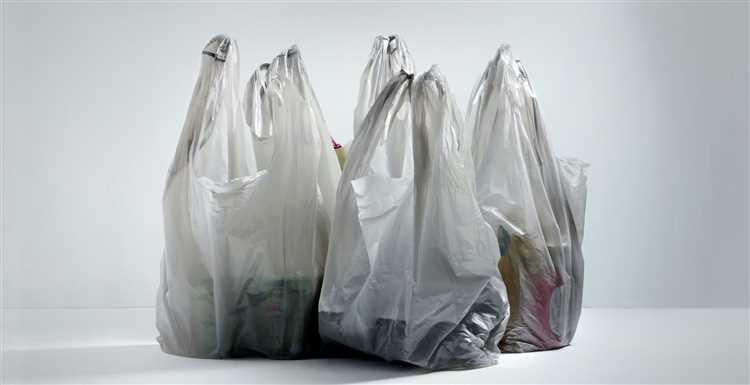
Plastic bags are widely used throughout the world for carrying groceries, retail items, and other goods. However, the convenience of these bags comes at a significant cost to the environment.
Plastic bag pollution has become a major environmental issue due to their non-biodegradable nature. Unlike paper bags, plastic bags do not decompose easily and can take hundreds of years to break down. As a result, these bags accumulate in landfills and water bodies, posing a serious threat to wildlife and ecosystems.
One of the most concerning impacts of plastic bag pollution is its effect on marine life. When plastic bags enter water bodies, they are often mistaken for food by marine animals such as turtles, dolphins, and seabirds. These animals can easily become entangled in the bags or ingest them, leading to injury or even death. Additionally, the chemicals present in plastic bags can leach into the water, contaminating the marine environment and threatening the health of aquatic species.
Plastic bag pollution also has direct consequences for land-based wildlife. Animals like cows, deer, and birds can mistake plastic bags for food, which can cause blockages in their digestive systems or lead to suffocation. The presence of plastic bags in natural habitats also disrupts ecosystems and can harm plant life by preventing the penetration of sunlight and air.
Furthermore, the production and disposal of plastic bags contribute to climate change. The manufacturing process releases greenhouse gases, while the incineration of plastic bags produces toxic fumes. Moreover, the improper disposal of plastic bags results in litter, which further degrades the environment and is aesthetically unpleasing.
In response to these environmental concerns, many countries and regions have implemented measures to reduce plastic bag usage. For instance, some jurisdictions have introduced plastic bag taxes or bans to discourage their use and promote more sustainable alternatives like reusable bags. These efforts aim to minimize the negative impact of plastic bag pollution and protect the environment for future generations.
| Impact of Plastic Bag Pollution on the Environment | ||
|---|---|---|
| Non-biodegradability | Accumulation in landfills and water bodies | Threat to wildlife and ecosystems |
| Marine life | Entanglement and ingestion | Chemical contamination |
| Land-based wildlife | Digestive system blockages | Disruption of ecosystems |
| Contribution to climate change | Greenhouse gas emissions | Toxic fumes from incineration |
It is crucial for individuals, businesses, and governments to recognize the detrimental effects of plastic bag pollution and take appropriate actions to address this issue. By reducing plastic bag usage and promoting sustainable alternatives, we can help protect our environment and ensure a healthier planet for future generations.
Question-answer:
Is there a plastic bag tax in Illinois?
Yes, there is a plastic bag tax in Illinois. The state implemented the tax in August 2022 as part of its efforts to reduce plastic waste and encourage the use of reusable bags.
How much is the plastic bag tax in Illinois?
The plastic bag tax in Illinois is 7 cents per bag. Retailers are required to charge customers this fee for each plastic bag used at the point of sale.
Are there any exemptions to the plastic bag tax in Illinois?
Yes, there are exemptions to the plastic bag tax in Illinois. The tax does not apply to certain types of bags, such as those used for medication, newspapers, produce, meat, and bulk items. Additionally, low-income individuals who participate in the Supplemental Nutrition Assistance Program (SNAP) are exempt from the tax.
What is the purpose of the plastic bag tax in Illinois?
The purpose of the plastic bag tax in Illinois is to reduce plastic waste and promote the use of reusable bags. By implementing a tax on plastic bags, the state aims to encourage consumers to bring their own bags and discourage the use of single-use plastic bags, which are harmful to the environment.
How will the revenue collected from the plastic bag tax in Illinois be used?
The revenue collected from the plastic bag tax in Illinois will be used for various purposes. A portion of the funds will go towards administering and enforcing the tax, while the remainder will be used for environmental programs and initiatives, such as recycling education and pollution prevention efforts.